Mercy in Islam: Spectra of Pervasive Virtues
We live in a world where crime and violence have percolated to all standards of life. The living testament of which can be readily observed through numerous media sources. But the true calamity of our time is not the presence of vice per se, as it has been around for centuries, but the fact that it has been widely ‘normalized’ in the post-modern world. Frequently subjected to visuals of mass violence, whether virtually created or otherwise, the minds of many young people have become indifferent to violent stimuli. To such an extent that they might, for once, stop to help a bleeding dog on the street but will not bat an eyelid on seeing a dying man whilst discussing karma on the freeway.
It becomes challenging in such a crisis of human values to talk about a notion as sanctified as mercy. People are of diverse kinds; some are those who look at a beautiful amphora and say, “What a remarkable piece of beauty!” Then there are some with deeper receptive capacities who, while looking at the vessel, wonder “What a remarkable craftsman must he be who made this!” and then there come those devoid of any deep understanding who exclaim “What is this old jar doing here? I thought these were obsolete!”. Sadly, in our times, the latter kind makes up the majority.
Without losing hope in humanity, I still believe that there will always be those who, following their inner conscience, will find their ways to the natural and ultimately the Divine. The discourse at hand is about mercy, and that too in a religion, which has been periodically portrayed as ruthless, vicious and everything but merciful. Videos of people speaking Arabic just before blowing themselves to pieces have slithered into every level of social and mass media. Beheadings of men by people wearing the keffiyeh or shemagh - Arabic head scarfs - enjoy millions of views, while Arab, followed by Russian, men remain the best choice of Hollywood producers for antagonistic roles. Thus, it might come as something new for folks associated with consuming the above content, forming a collective culture of fear and misinformation, when I say that Islam is a religion of mercy.
How did this religion end up being portrayed as a breeding platform for terrorism and who were the people responsible for it is a discussion demanding its attention and space, which let us keep for another time, but what is of importance here is the traditional view of the religion itself about the notion of mercy. With this, I begin by stating again that Islam is indeed a religion of peace and mercy, to the extent that mercy is inseparable from it. In Islam, mercy prevails and permeates every level of expression; whether it be an individual’s life or the existence of the very cosmos we live in, all symbolize mercy.
To further elucidate the pivotal place of mercy in the Islamic doctrine, we will be focusing on four major aspects; Divine mercy, the mercy of the Creator to his creation, Acknowledging the Divine mercy by the creation, embodiment of mercy in human-human interactions and finally, on mercy in human to non-human encounters. Our discourse will be limited to the traditional sources of Islamic theology, the Qur’an and Ḥadith and their classical interpretations, eliminating thus any possibility of modernist, fundamentalist, or extremist views. A restatement of our belief that Islam is best represented with its authentic interpretations transmitted and accepted over the centuries.
Divine Mercy
The word for mercy and compassion in Arabic is “Raḥmah”, closely related to the word “Raḥem” - with a ‘kasrah’ on ‘ḥa’ - which means the womb. Symbolizing that we live in the world as a child lives in a mother’s womb, he is fed, taken care of and protected, the place being his temporary abode, until he opens his eyes to the real world. Much like us, who live in this world temporarily until a fixed tenure and depart to the next where we will live eternally. The fact that the word for mercy, in general, has motherly connotations indicates that the purest and selfless type of compassion and mercy is maternal.
It is notable under the aforementioned construct that two of the beautiful names of the Almighty Allah are “al-Raḥmān” and “al-Raḥeem”, both of which are superlative noun forms of “Raḥmah” in a way that “al-Raḥmān” meaning the most compassionate is more encompassing than “al-Raḥeem” the merciful. Scholars deem the name “al-Raḥmān” to be exclusively used for Allah the exalted and none beside him, because infinitude is for the Divine alone and none can be infinitely compassionate except the Almighty. A live exhibit of his infinite mercy is the reality that He feeds, nurtures and protects all in this world. Even those who oppose him or disbelieve are not excluded from the Divine bestowal of sustenance and the gift of seeing, hearing and feeling.
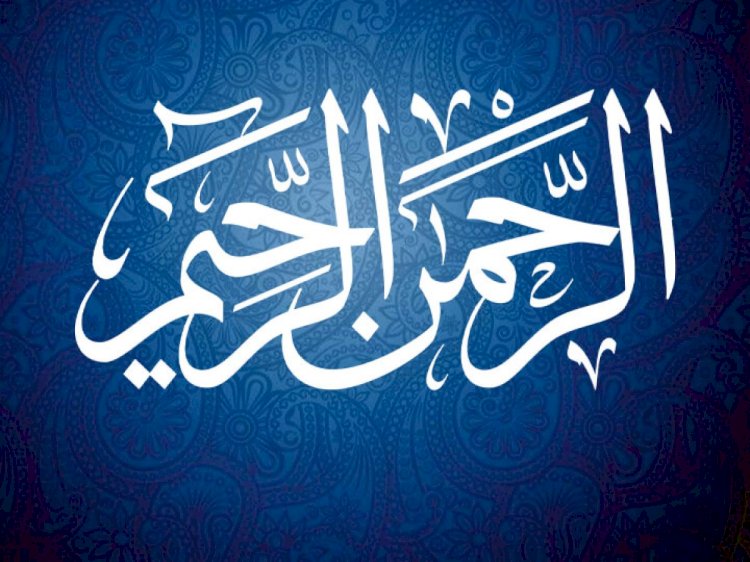
Let us look at the words with which the Qur’an commences; according to jurisprudential scholars, the Qur’an begins with “al-Fāteḥah” the opening chapter, but before reciting any chapter of the Qur’an except the 9th, every Muslim is commanded to recite the verse “Bismillāhir Raḥmānir Raḥeem” which is written above the chapters and appears as a continuing verse in the 27th chapter’s 30th verse. Hence, the Qur’an is to be recited by invoking this verse first, which translates to “Allah’s name to begin with, the Most Affectionate, the Merciful”. Now, the very first chapter “al-Fāteḥah” begins as “Alḥamdulillāhi Rabbil Ạ̄lāmeen” All praise is due to Allah the Lord of the Worlds, followed by the verse “ar-Raḥmān-ir-Raḥeem” the Most Affectionate, the Merciful. These two verses carry a myriad of noble teachings, the first one being that Allah the Almighty introduces himself to the reciters of the Qur’an in the very beginning as the Most Affectionate and Merciful and also commands them to invoke these merciful names time and again whenever they read chapters of the Qur’an.
Furthermore, it is the Divine will to be known by His infinite mercy, as He says in a Ḥadith Qudsi: “My mercy precedes My wrath” [Bukhari, Muslim, Ibn Majah] Once again reminding the creation that their Lord is Merciful and Compassionate. The universality of this Divine mercy is mentioned in the Qur’an as “My mercy embraces all things” [7:156], and the believer is advised to never lose hope as “Despair not of the mercy of Allah, Who forgiveth all sins. Lo! He is the Forgiving, the Merciful” [39:53]. In another place, it is mentioned, “Your Lord hath prescribed for Himself mercy” [6:54]. These verses of the Holy scripture point out that the relation which the Divine has with His creation is of infinite mercy, compassion, and forgiveness.
Acknowledging Mercy
The colossal realization in mind that “the Lord forgiveth” triggers a beautiful response by the Believers. Knowing that the Divine preferred to be recognized by His mercy, they invoke in their prayers these beautiful and merciful names of Allah with conviction that the Divine mercy will shower upon them bounties of this world and the hereafter. A practice taught to them by their Prophet (peace be upon him), the one who was sent himself as a “mercy unto the worlds”, as stated by the Qur’an. Being the perfect manifestation of Divine mercy, he elucidated to his nation the remembrance of their Lord’s mercy as recorded in the books of Prophetic narrations. In one narration, He (peace be upon him) says, “Allah has one hundred mercies, out of which He has sent down only one for jinn, mankind, animals and insects, through which they love one another and have compassion for one another; and through it, wild animals care for their young. Allah has retained ninety-nine mercies to deal kindly with His slaves on the Day of Resurrection.” [Bukhari] Other instances are where the Prophet (peace be upon him) told his companions that Allah is more merciful to His creation than a mother who loses her child and finds it. [Bukhari] The believers are reminded to invoke the Divine names “Yā Raḥmān” and “Yā Raḥeem” in their prayers, and they will be accepted. Even the names such as “Ạbd Allāh” bondman of Allah and “Ạbd Ar-Raḥmān” bondman of the Most Affectionate, were encouraged by the Prophet (peace be upon him) by describing them as beloved to the Almighty [Muslim 5315].
Thus, the Prophet of mercy (peace be upon him) taught the Believers to acknowledge that Divine mercy is boundless and to establish a connection of mercy with their Lord. Through their daily practices, they can participate in this meta-physical transaction of receiving Divine mercy and, in turn, spreading it out to their surroundings. This knowledge of the infinitude of Divine mercy manifests in the lives of the believers at nearly every instance; no matter how much they oppress themselves, as sinning is oppression unto oneself in the Islamic paradigm, they are always mindful that the doors of salvation are not closed and that the Divine mercy which encompasses everything will indeed forgive their sins if repented sincerely.
To fully get a ‘taste’ of what is expounded in the above discourse, one can visit any Masjid, Sufi shrine and Madrasa to note a common believer or a student of sacred knowledge with weeping eyes and a cracked voice, beseeching their Creator with the invocation of the names mentioned above. These servants of the Merciful, the common and the learned alike, exhibit the truth that mercy has indeed permeated the life of every Muslim.
Embodying Mercy
A Muslim is required to make his worldly stay by the injunctions of the Shari’ạh. The Shari’ah being the guiding principle for both exoteric and esoteric elements of life, commands the believer to perform noble acts as an outwardly cleansing and emptying oneself from all corrupt tendencies and purging desire to cleanse the inward. This will enable man to return to the paradisiacal state he originally came from. Thus, mercy being a Divine trait and the paradisiacal aim of Muslims, exhibits itself in both their inward and outward characters. Well aware that the Lord loves compassion, a Muslim tries to inculcate it in his character, remembering that the Prophet (peace be upon him) said: “Allah is compassionate and loves compassion. He gives for compassion what He does not give for harshness.” [al-Adab al-Mufrad]
This permeance can be understood deeper when one observes the aspects of life in which mercy has been prescribed for the believers. For instance, the Prophet (peace be upon him) said: “None of you will believe until you love for your brother what you love for yourself.” [Bukhari] The Qur’an commands the believer not to shun their parents when they reach old age and to be gentle and merciful with them and pray for them, as stated: “And lower unto them the wing of submission through mercy, and say: My Lord! Have mercy on them both as they did care for me when I was little.” [17:24] The best amongst people were deemed those who were best in character to their households, as the Prophet (peace be upon him) said, “The best of you are those who are best to their families”. [Sunan al-Tirmidhi] Of course, the best character has mercy and compassion as prerequisites. Hence, mercy is realized not only to one’s self in a private dialogue with the Divine, as we discussed in the previous pages, but is manifest in daily lives by treating one’s parents, brothers (and sisters) and household with the best of character and necessarily with compassion.
Thus, when the believer understands his connection with the Divine mercy and tries to embody it into his character and actions, which ultimately is his goal, to return to his primordial form and Paradisiacal abode, one inevitably actualizes the mercy as read in the scriptures into one’s own life and manifests these both outwardly and inwardly.
Propagating Mercy
Almighty Allah created man, as the Qur’an describes “fī aḥsani taqweem” in the best or most-beautiful form. The progeny of Adam (peace be upon him) was given the lofty crown of honor in Quranic terms, “laqad karramnā banī Ādama” [17:70]. Man has also been declared as Allah’s “Ḳhalīfah”, Caliph or vicegerent on earth. The vicegerency he has bestowed with is a priceless bounty but a great responsibility. The Almighty gave man the necessary provisions, namely intellect, speech, language, discerning capabilities, etc., to live in the world while benefiting from it and utilizing its resources. The man was entrusted with a ‘perfect world’ in the sense that it would suffice for his needs and provide him with all worldly provisions. Nevertheless, there was an esoteric meaning to the world as well, a meaning which the Qur’an calls “Āyah pl. Āyaat” signs, a reflection of the Divine traits and a way for the people to know their Creator. The man was bestowed with nature, both as something which could quench his material thirst as well as his spiritual or meta-physical thirst. He could look at the spectacle of rain pouring down from Heaven and reviving the dead earth or collect the rainwater to drink it.
The vicegerent was meant to be a benefiter, a guardian, and protector. Islam described nature as an instrument of Divine knowledge and a garden of signs which remind man of the traits of the Almighty. Thus, ensuring that man would consider the cosmos as sacred as anything else him of The Lord. Moreover, people of insight could realize these signs on deeper and more spiritual levels; they would read the Qur’an in their hands written with ink and could also realize the Qur’an, which was present around them in nature, both of which led him to one transcend reality, Allah. Hence, it would be a crime akin to blasphemy for someone to even think about destroying something as sacred as nature.
This prevalent insanity that we’re seeing in today’s world called “consumerism” has nothing to do with man’s purpose on Earth. The Caliph of God would never try to “consume” anything natural other than benefitting from it in a healthy way, which is nothing but taking according to one’s need rather than want or desire. Since the Qur’an prohibited wastage, as stated, “O Children of Adam! Dress properly whenever you are at worship. Eat and drink, but do not waste. Surely, He does not like the wasteful.” [7:31], the believer would never deliberately try to waste any of the provisions.
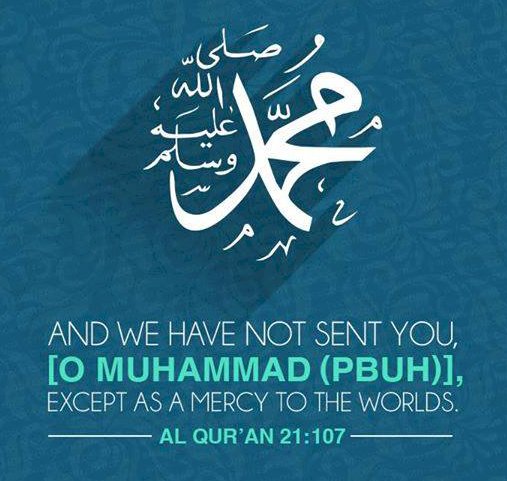
Furthermore, the essential duty of human realizing Divine commandments in his life necessitates that he treats nature not only with respect and sanctity but also with mercy. The archetype of “mercy unto the nature” is displayed perfectly by the one who was sent as “mercy unto the worlds”, the Prophet Muhammad (peace be upon him). Through his words and actions, he emphasized greatly on treating the non-human world with mercy and compassion. A beautiful parable elucidates this further, narrated by the Prophet (peace be upon him) about a man who was thirsty and went to a well quenching his thirst, wherein he saw a dog, licking mud due to immense thirst. He filled his shoes with water and gave the dog, upon which Allah rewarded him. This intrigued the companions as they asked, “Is there a reward for us in serving the animals?” to which the Prophet replied, "There is a reward for serving any living being” [Bukhari 2466].
Moreover, it is a vital part of the Islamic doctrine that all living things praise the Almighty, a notion which appears in the Qur’an regularly as, “Do you not see that Allah is praised by all those in the Heavens and the Earth, even the birds as they soar? Each knows their manner of prayer and glorification. And Allah has knowledge of all they do.” [24:41]. And to each of these creatures is their own abode in the Earth as stated “And the earth hath He appointed for (His) creatures” [55:10]. Thus destroying a natural habitat for one’s selfish desires is, first, attacking something which is in a “praying” state, and second, is unlawfully taking from the creatures what the Lord has rightfully made theirs, everything opposite to the requisites of mercy.
Additionally, it is the Divine duty of the vicegerent to uphold the three crucial parts of the religion “Īmān”, faith, “Islām” rites and rituals and “Iḥsān”, the spiritual facet of the religion which also insinuates the act of “beautifying”. This aspect of religion is to be the source of all Islamic art and architecture. The beautiful wedding of beauty with virtue in Islam has rendered a sound foundation for propagating mercy through acts of beautifying and virtuous deeds. The vicegerent beautifies himself - the microcosm - and his community as well as the world - the macrocosm. Thus, the Prophet of Islam commanded people to plant trees as an act of mercy, a practice exemplifying the facet of Ihsan, as he said, “There is none amongst the Muslims who plants a tree or sows seeds, and then a bird, or a person or an animal eats from it, but is regarded as a charitable act for him.” [Bukhari 2320]
We must understand that Islam, being a theocentric religion, gives the complete focus on God. We cannot know him categorically but can gain a level of certitude by meditating on His Divine traits (Ṣifāt) and actions (Af'ạ̄l). From the above discourse, we saw that Allah is infinitely merciful and compassionate. Thus, all His creations reflect Divine mercy with varying intensities. Since this Divine mercy manifests in the grace which flows in the very arteries of nature and ultimately the cosmos, Islam as a natural religion cannot help but be impregnated by mercy on all levels of expression.
(Fardeen Ahmad Khan Razvi is an Oriental Author with over a hundred articles and some two dozen booklets on Islam and Oriental subjects to his credit, Written in Arabic, English, Urdu and Hindi languages. His minor is in Computer Applications pursuing his Major in Data Science. The author is also an eloquent Urdu poet coming from a Sufi background in Northern India.)
Disclaimer
The views expressed in this article are the author’s own and do not necessarily mirror Islamonweb’s editorial stance.

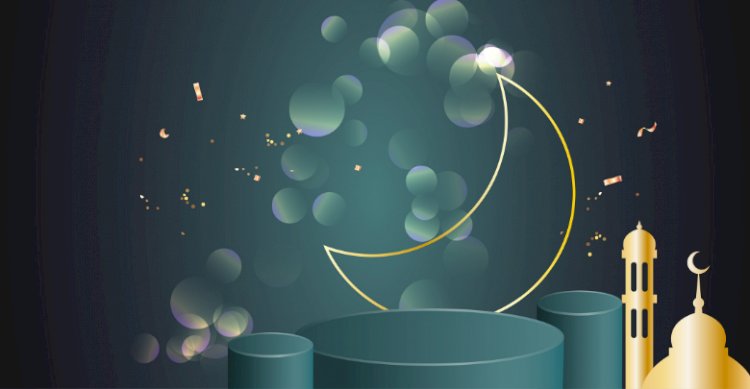


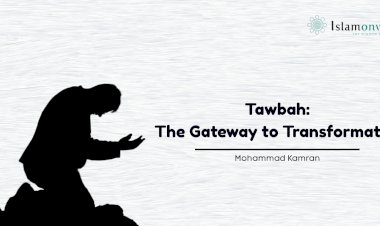
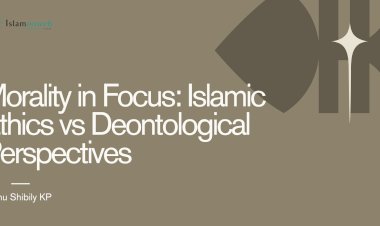
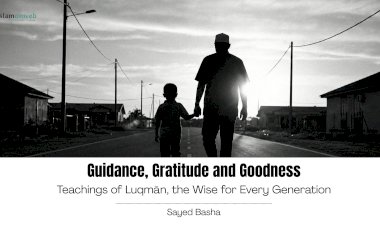

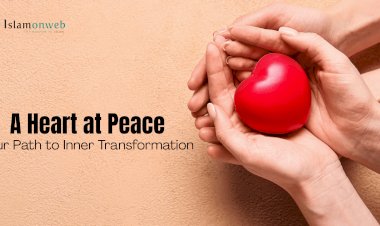
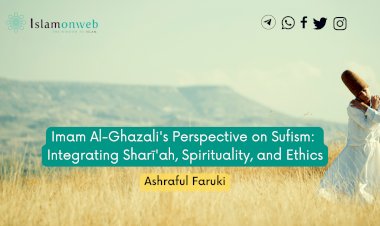














Leave A Comment